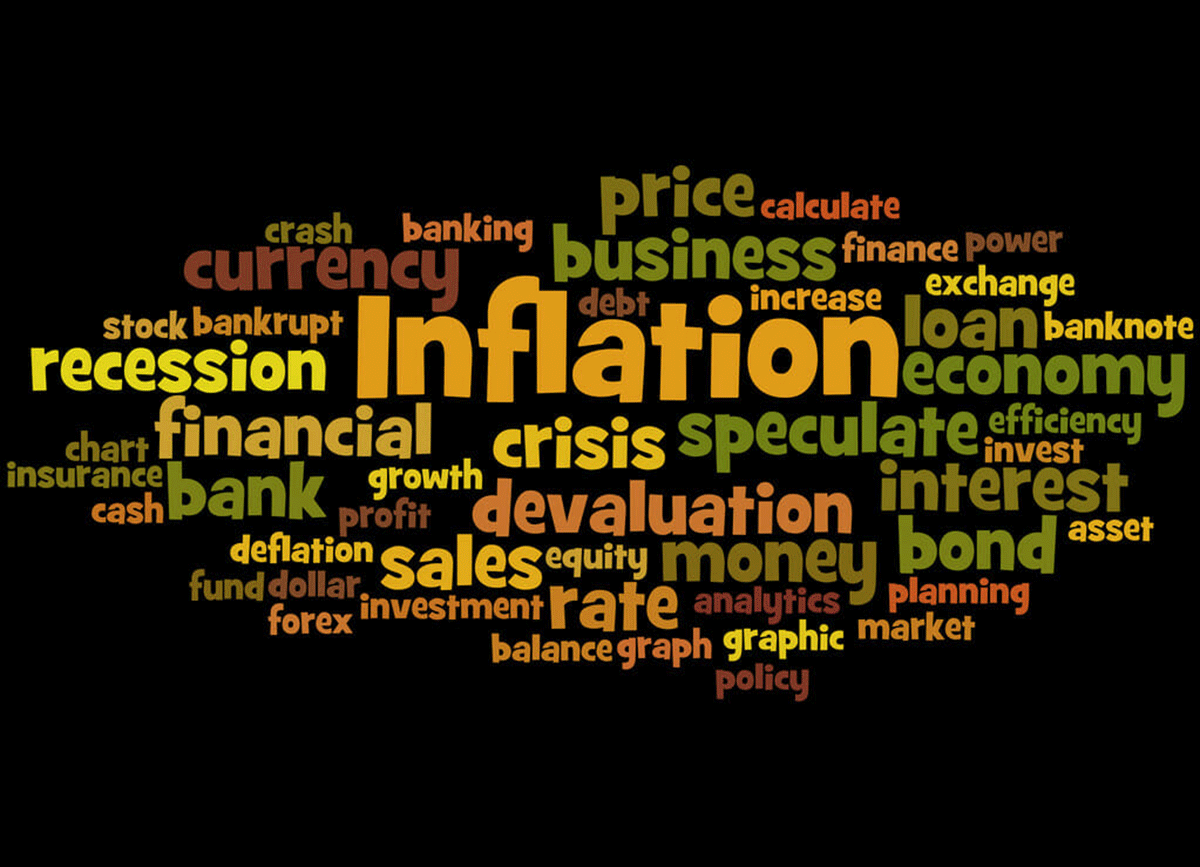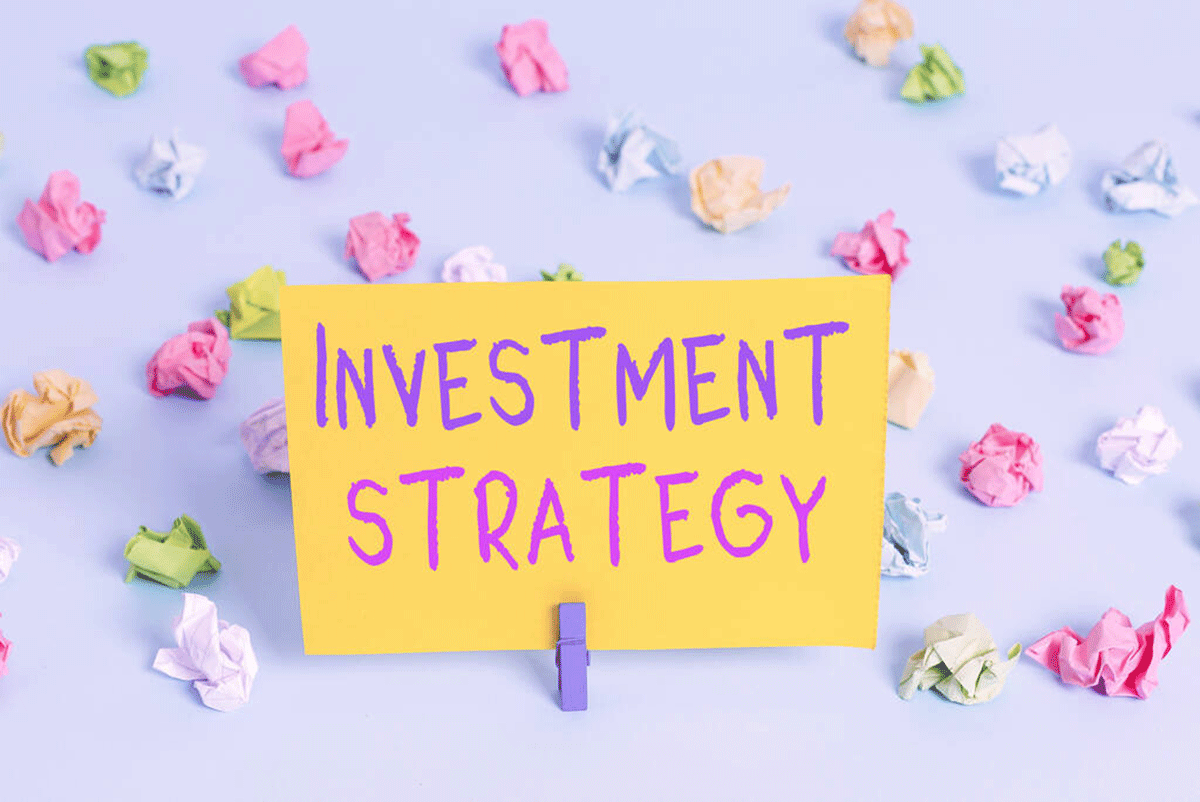To get started investing in Pakistan, choose a strategy aligned with your investment budget, the timelines for your investment goals, and the level of risk that is suitable for you.
If you’re new to the world of investing and looking to make your money work for you, you’ve come to the right place. In this guide, we will explore the basics of investing and provide valuable insights into the various investment options available in Pakistan.
Whether you’re interested in equities, real estate, or other investment avenues, we will help you navigate through the different choices and make informed decisions. We will also discuss the importance of diversification in maximizing returns and offer tips for budget-friendly investing. Lastly, we will address the impact of inflation on your investments and provide strategies to protect your hard-earned money in a changing economy.
So, let’s dive in and start our journey towards financial success in Pakistan.
Understanding the Basics of Investing
Investing can seem overwhelming, especially for beginners. However, understanding the basics of investing is crucial for long-term financial success. We will provide a comprehensive overview of investing for beginner Pakistani investors and aspiring entrepreneurs.
When it comes to investing, it’s important to remember that it’s not just about buying stocks.
There are various investment options available, such as bonds, mutual funds, and real estate. Diversification is key to managing risk and maximizing returns. By investing in different asset classes, you can mitigate potential losses and increase the chances of higher returns.
Setting clear investment goals and developing a strategy that aligns with those goals is essential. Whether you’re saving for retirement, education, or any other financial objective, having a plan in place will help you make wise investment decisions.

Before making any investment decisions, it is important to conduct thorough research and due diligence. Understanding the fundamentals of the companies or assets you are investing in is crucial. This will help you make informed decisions and avoid unnecessary risks.
Patience and a long-term perspective are important when it comes to investing. It’s easy to get swayed by short-term market fluctuations, but it’s important to resist making impulsive decisions.
Investing is a marathon, not a sprint, and consistently staying the course can yield better results in the long run.
Regularly reviewing and adjusting your investment portfolio is necessary to ensure it remains aligned with your goals and risk tolerance. As your financial situation and objectives may change over time, it’s important to reassess your investments periodically and make necessary adjustments.
Seeking professional advice from financial advisors or investment professionals can provide valuable guidance and expertise. They can help you navigate the complex world of investing and provide personalized advice based on your individual circumstances. Let me share this reddit thread to give you the best resource to read on investing.
Lastly, investing is a continuous learning process. Staying informed about market trends and developments can help you make more informed decisions. By staying updated, you can make adjustments to your investment strategy and take advantage of potential opportunities.
Exploring Investment Options in Pakistan
As Pakistani investors continue to explore different investment options, they have shown a keen interest in the Pakistan Stock Exchange (PSX). The development of online trading platforms and increased investor awareness have led to a surge in trading activity, with sectors such as banking, energy, and technology attracting the most attention.
Real estate has long been a favored investment option in Pakistan. Major cities like Karachi, Lahore, and Islamabad have witnessed significant development and investment activity in both residential and commercial properties.
Pakistani investors, both local and overseas, have been actively participating in the real estate market.
Mutual funds have emerged as a popular choice among Pakistani investors looking to diversify their portfolios and access professional fund management. These funds offer investment opportunities across various asset classes, including equities, fixed income, and money market instruments.
Islamic finance options have gained popularity among investors seeking Sharia-compliant investments. Islamic mutual funds, Sukuk (Islamic bonds), and Islamic Takaful (insurance) have provided Pakistani investors with opportunities to align their investment choices with their religious beliefs.
In recent years, Pakistani investors have also shown a growing interest in startups and entrepreneurial ventures. The country has witnessed the emergence of incubators, accelerators, and angel investor networks that support the startup ecosystem. Technology startups, fintech, e-commerce, and other innovative sectors have become attractive investment opportunities for Pakistani investors.
Gold has traditionally been considered a safe-haven investment in Pakistan. Investors often allocate a portion of their portfolios to gold, whether in the form of physical gold or gold-related investments. It is seen as a way to protect against inflation and diversify investment portfolios.
Overall, Pakistani investors have a range of investment options to consider, from equities and real estate to mutual funds, Islamic finance, startups, and gold. Each option has its own benefits and risks, and it is important for investors to conduct thorough research and seek professional advice before making any investment decisions.
Optimizing Investment Performance through Diversification

Building a balanced investment portfolio is essential for Pakistani investors seeking to maximize their returns. One of the key strategies in achieving this is through diversification.
Diversifying your investment portfolio involves spreading your capital across different asset classes, such as equities, mutual funds, ETFs, real estate, agriculture, software and IT, gold, and collectibles, among others.
By diversifying, you reduce the risk of losing everything if one investment performs poorly. This is because different asset classes tend to have varying levels of correlation, meaning they may move in different directions in response to market conditions.
Before diversifying your portfolio, it is important to understand your risk tolerance and investment goals. Your risk tolerance will determine how much exposure you are comfortable with in certain asset classes, while your investment goals will guide your overall strategy.
When diversifying, it is crucial to consider the correlation between different asset classes. Ideally, you want to invest in assets that have a low or negative correlation. For example, stocks and bonds tend to have a negative correlation, meaning they often move in opposite directions. By investing in assets with low correlation, you can reduce the likelihood of them moving in sync, thus minimizing risk.
One of the main benefits of portfolio diversification is risk mitigation. By spreading your investments across different assets, you can reduce the impact of any single investment’s poor performance on your overall portfolio. For instance, if the stock market takes a downturn, having other asset classes, such as bonds or real estate, in your portfolio can help cushion the blow.
In addition to risk mitigation, diversification can also help maximize returns. By allocating your resources strategically across different asset classes, you can take advantage of different market opportunities and reduce the impact of market downturns. This allows you to potentially earn higher returns while protecting your investments against inflation.
To start diversifying your portfolio, consider allocating your resources to a mix of asset classes, such as stocks, bonds, real estate, and government bonds like Pakistan Investment Bonds (PIBs). It is important to research and understand each asset class before investing to ensure that they align with your risk tolerance and investment goals.
Diversifying your portfolio is not limited to large investments. Even with a small amount of money, you can start investing and participate in the benefits of diversification. Some popular investment options for small investors include national saving schemes, shares of small and medium enterprises, and pooled investment vehicles like mutual funds and ETFs. Read another resource on diversification.
Budget-Friendly Investing in Pakistan

Investing is often seen as something that requires a large sum of money, which can discourage many people from getting started. However, the reality is that even with a little amount of money, you can start investing and see sufficient gains over time. The key is to start early and start smart, even with a small budget.
There are three simple ways to start investing on a budget in Pakistan. The first is to invest in securities on the stock exchange.
With as little as Rs 10,000/- per month, you can invest in these securities and earn substantial returns through the power of compounding. By reinvesting the returns and dividends earned from these investments, you can generate additional earnings over time.
The second way to invest on a budget is through mutual funds. Mutual funds pool money from multiple investors to invest in a diversified portfolio of assets. This allows you to invest in a variety of sectors, such as business, real estate, agriculture, software and IT, gold, and collectibles, among others. With a small amount of money, you can buy shares of mutual funds and benefit from their returns.
The third option for budget-friendly investing is to consider investing in exchange-traded funds (ETFs). ETFs are similar to mutual funds, but trade on stock exchanges like individual stocks. They offer the benefit of diversification, as they hold a basket of assets, such as stocks, bonds, and commodities.
Investing in ETFs allows you to gain exposure to various sectors and industries without needing a large amount of money.
With the passage of time, you can diversify your portfolio by investing in different stocks, mutual funds, and ETFs. Taking advantage of market movements, such as buying at a lower cost during market falls and selling when the market is high, can result in substantial capital gains.
In addition to these options, there are other investment avenues to consider, such as savings accounts, Pakistan Investment Bonds (PIBs), government bonds, stocks, gold, and infrastructure projects. Diversifying your portfolio across different investment options can help minimize risk and potentially provide higher returns.
By starting early, starting smart, and making regular contributions, even with a small budget, you can build wealth over time and achieve your financial goals.
Protecting Your Investments Against Inflation

Understanding the impact of inflation on investments is crucial for Pakistani investors looking to safeguard their portfolios in a changing economy. Inflation affects all areas of the economy, including investments, and it’s important to consider its effects when making investment decisions.
Inflation is measured by the Consumer Price Index (CPI), which tracks the average cost of goods and services over time.
The normal range of inflation in Pakistan is typically around 8.36%, but in 2023, it rose exponentially to 37.97%. This means that prices increased by 37.97% for the year, making it the most expensive year to purchase goods and services.

Supply and demand play a significant role in inflation. When demand for a particular good or service rises or the supply decreases, prices tend to rise. Factors such as the cost of goods and labor, taxes, and availability of loans can impact supply and demand both nationally and internationally.
Inflation can eat away at investment returns, especially when nominal interest rates are not adjusted for inflation. Nominal interest rates are the rates of interest without any adjustment for inflation. To protect against the effects of inflation, it’s important to seek strategies that can help preserve the purchasing power of your investments.
One strategy is diversifying your portfolio across different asset classes. Investing in a mix of equities, mutual funds, ETFs, real estate, agriculture, software and IT, gold, and other assets can help mitigate the impact of inflation.
Compounding returns over time can also help your investments grow and keep up with inflation.
Investing in non-rental real estate, such as commercial properties or land, can also be a good way to protect against inflation. Real estate tends to appreciate over time and can provide a hedge against inflationary pressures.
Another popular investment option in Pakistan is investing in government bonds, such as Pakistan Investment Bonds (PIBs). These bonds offer a fixed rate of return and can be a stable investment option to protect against inflation.
Furthermore, investing in infrastructure projects or small and medium enterprises (SMEs) can provide opportunities for higher returns and can help diversify your portfolio.
And lastly, it’s important to consider investing in assets denominated in currencies other than the Pakistani rupee, such as the US dollar. This can help hedge against the depreciation of the rupee and protect against inflation.
How to Start Investing in 2024: A 5-Step Guide for Beginners

If you’re a beginner searching for an investment guide to begin your journey into investing in 2024, then you’ve come to the perfect spot. These five steps would be enough to equip you with the right skills needed for a wise decision about investing money.
Investing can seem intimidating, especially if you’re just starting out. However, with the right knowledge and strategies, you can make your money work for you and achieve your financial goals.
1. Unlock the Power of Early Investing
The adage “time in the market beats timing the market” holds true. When it comes to investing, one of the most important pieces of advice for beginners is to start as early as possible. This holds true for Pakistani investors as well. The power of compounding and the time factor play a crucial role in building wealth over the long term.
Early investing has benefits: longer investment horizon for more growth and compounding power for additional returns.
Investing when you’re young is one of the best ways to see solid returns on your money, thanks to compound earnings. Compounding allows your account balance to snowball over time, helping you achieve greater returns in the long run.
2. Determine Your Investment Budget
Before diving into investments, it’s crucial to assess your financial situation and determine how much you can comfortably allocate towards investing. How much you should invest depends on your financial situation, investment goal, and when you need to reach it. Consider your short-term and long-term financial goals, and allocate your funds accordingly.
When setting financial goals, it’s essential to consider your current financial situation, risk tolerance, and investment objectives. Whether your aim is to save for retirement, buy a house, or build an emergency fund, having clear goals can help guide your financial decisions and prioritize your spending and saving habits. Understanding your financial situation involves assessing your income, expenses, assets, and liabilities to determine how much you can afford to invest and save each month.
Financial advisors typically advise individuals to allocate a portion of their earnings towards investments, striving to strike a harmonious balance that allows for present-day necessities as well as future savings.
Moreover, it is wise to establish an emergency fund to manage unforeseen expenses before committing any funds to investments.
3. Open an investment account
Once you’ve determined how much you’re ready to invest, the next step is to open an investment account. There are various types of investment accounts to choose from. One of the key advantages of investment accounts is the array of investment choices they offer.
In Pakistan, common types of investment accounts include individual brokerage accounts, voluntary pension schemes (VPS), mutual fund accounts, National Savings Schemes (NSS), employee provident fund (EPF) / contributory provident fund (CPF) accounts, real estate investment trusts (REITs), and savings accounts/term deposits.
It’s important for investors to carefully evaluate their investment objectives, risk tolerance, and tax considerations before choosing the most suitable investment account in Pakistan.
Certificates of Deposit (CDs) are a popular investment vehicle known for their low-risk nature and fixed returns. These financial products typically require a minimum deposit to open an account, with amounts varying depending on the bank or financial institution offering the CD.
Taxable brokerage accounts offered by brokerage firms are popular investment vehicles that provide investors with the flexibility to buy and sell a wide range of securities. While these accounts offer the potential for high returns, investors should be mindful of the tax implications associated with their investment activities.
4. Craft Your Investment Strategy

With your investment account set up, it’s time to develop an investment strategy tailored to your goals, risk tolerance, and time horizon. There are numerous investment strategies in Pakistan to consider, ranging from conservative approaches focused on capital preservation to aggressive strategies geared towards maximizing returns. Some popular strategies include:
- Diversification: Spreading your investments across various asset classes (such as stocks, bonds, real estate, and commodities) to reduce risk.
- Asset Allocation: Determining the ideal mix of asset classes based on your risk tolerance and investment objectives.
- Passive Investing: Utilizing index funds or exchange-traded funds (ETFs) to track the performance of a market index rather than actively picking individual stocks.
- Active Investing: Researching and selecting individual stocks, bonds, or other securities in an attempt to outperform the market.
One investment strategy that often promises high potential returns is day-trading. Day trading involves buying and selling financial instruments, such as stocks or currencies, within the same trading day to capitalize on short-term price movements. While day trading can potentially yield significant profits, it also comes with high risks due to the volatile nature of the markets. Investors must carefully analyze market trends and employ effective trading strategies to minimize losses and maximize potential returns.
Choose an investment strategy that makes sense for your saving goals and risk tolerance. Consider investing in low-cost stock mutual funds, index funds, or ETFs for long-term growth. For short-term goals, consider cash management accounts or low-risk investment portfolios to avoid the risks associated with stocks.
5. Understand your investment options

You have to understand the universe of choices. Familiarize yourself with the various investment options available, such as stocks, bonds, and real estate. Understand the risks and potential rewards associated with each asset class, and make informed decisions based on your financial needs, objectives, and risk tolerance.
Before making any investment decisions, take the time to educate yourself about the various investment options available. One of the most important factors that investors consider is the potential returns on their investments. Potential returns refer to the profit or earnings that investors expect to receive from their investment over a certain period. These returns can vary depending on the type of investment, the level of risk involved, and market conditions. Some common investment vehicles include:
- Stocks: Ownership stakes in publicly traded companies, offering the potential for capital appreciation and dividends.
- Bonds: Debt securities issued by governments or corporations, providing fixed interest payments over a specified period.
- Mutual Funds: Pooled funds that invest in a diversified portfolio of stocks, bonds, or other assets, professionally managed by investment professionals.
- ETFs: Similar to mutual funds but traded on stock exchanges like individual stocks, offering diversification and liquidity.
- Real Estate: Investing in physical properties or real estate investment trusts (REITs) to generate rental income and potential appreciation.
Each investment option carries its unique risk and return characteristics, so it’s crucial to assess them carefully and consider how they fit into your overall investment strategy.
For first-time investors, individual investments may seem overwhelming, but starting with small steps and researching investment options can help build confidence and knowledge over time. It’s crucial to consider minimum investment requirements and fees associated with different investment vehicles, such as stocks, bonds, mutual funds, or ETFs.
While investing involves inherent risks, seeking investment advice from financial advisors or using investment apps can provide valuable insights and guidance tailored to your individual goals and risk profile.
Whether you prefer active investing, where you actively manage your portfolio, or passive investing, where you follow a buy-and-hold strategy, having a clear investment plan and sticking to it can help navigate market fluctuations and achieve your financial objectives.
Long-term investments involve holding assets for an extended period to maximize returns, while short-term investments are held for a shorter duration to preserve capital or take advantage of immediate opportunities, and traditional investments encompass established assets like stocks, bonds, and real estate for wealth growth and stability.
FAQs on Investing in Pakistan

Investing in Pakistan can be a great opportunity due to the country’s growing economy and strategic location. Let’s have answers to the most common questions:
How can I make money in Pakistan without investing in stocks?
There are several ways to make money in Pakistan without investing in stocks. One option is to have a high-yield savings account. There are Shariah-compliant savings accounts in various banks in Pakistan. Shariah-compliant funds are investment funds that adhere to the requirements of Shariah law and the principles of Islam.
What are non-financial investment types?
When exploring potential investment opportunities, you may encounter the concept of ‘non-financial assets.’ This particular term encompasses assets, such as land or real estate, that are not subject to stock market trading. Other notable examples include investments in natural resources or patents.
What are the best low-risk investments in Pakistan?
The most effective low-risk investment options are not typically categorized as investments. Placing your funds in a high-yield savings account, certificate of deposit, or money market account can generate a superior return compared to a conventional savings account.
How to invest when you’re broke?
It is true that the old saying “it takes money to make money” holds a lot of weight. Many individuals who are barely making ends meet don’t have any surplus funds to invest. When immediate financial needs are a concern, the idea of might seem a distant dream.
How should a beginner invest?
For beginners, it is advisable to begin their investment journey by contributing to a retirement plan. Additionally, opting for index funds or exchange-traded funds (ETFs) is a wise choice.
Why should you start investing in Pakistan?
There are several compelling reasons why you should consider investing in Pakistan. Investing is important for maintaining the value of your savings and achieving long-term financial goals like retirement or wealth building. Traditional bank accounts with low interest rates may lead to your savings losing value due to inflation.
Can I start investing with $1000?
Yes, you can start investing with $1000. Many brokerage firms offer low-cost investment options, such as mutual funds, ETFs, and fractional shares, allowing investors to begin with smaller amounts.
How do I invest in stocks?
To invest in stocks, you’ll need to open a brokerage account, research companies, choose stocks that align with your investment goals and risk tolerance, and then place buy orders through your brokerage platform.
How can I invest with no money?
If you have no money to invest, you can start by saving a small portion of your income until you have enough to begin investing. Additionally, some investment platforms offer promotional incentives or bonuses for new users, allowing you to start investing with minimal funds.
Why should I invest?
Investing offers the potential to grow your wealth over time, beat inflation, and achieve financial goals such as retirement, buying a home, or funding education. By investing wisely, you can build a diversified portfolio that generates passive income and secures your financial future.
When should I start investing?
The best time to start investing is as soon as possible. The power of compounding allows your investments to grow exponentially over time, so the earlier you start, the better. Regardless of your age or financial situation, starting now can significantly impact your long-term financial success.
In Short
As we conclude our guide on smart investing on a budget for Pakistani investors, it is important to emphasize the power of knowledge and informed decision-making.
By understanding the basics of investing and exploring the various options available in Pakistan, you can make confident choices that align with your financial goals.
Remember the importance of diversification in building a balanced investment portfolio and maximizing returns. Even with limited funds, there are budget-friendly investment strategies that can help you grow your wealth over time.
Lastly, be mindful of the impact of inflation on your investments and employ strategies to safeguard your hard-earned money. With patience, discipline, and a commitment to continuous learning, you can navigate the world of investing and achieve financial success in Pakistan.












